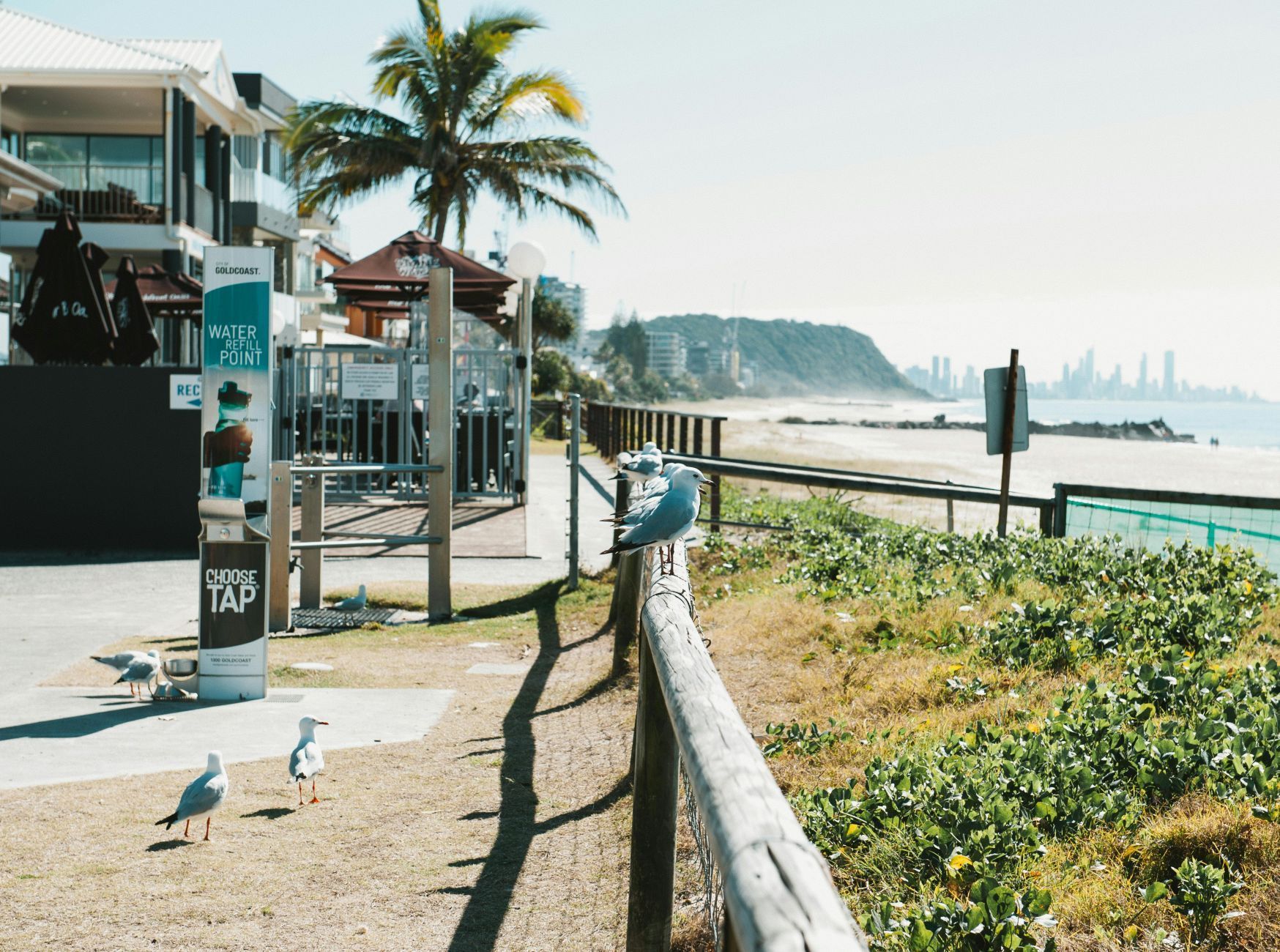How to Invest in Real Estate: 15 Broker-Approved Tips
Today’s Gold Coast property market is thriving, driven by steady population growth, major infrastructure projects, and a booming tourism sector.
Whether you’re eyeing coastal apartments or suburban family homes, it pays to approach the market with a clear plan. Knowing your goals, understanding local trends, and mapping out your budget can save you time and money down the road.
With competitive rental yields and capital gains within reach, investors who take the time to set objectives and outline their steps are better positioned for long-term success when they invest in real estate.
In the following sections, we’ll dive into practical tips to help you build a winning strategy and make the most of the Gold Coast’s and Queensland’s property market opportunities.
Custom Loan Strategies for Property Investors.
Our Gold Coast mortgage brokers specialise in tailored financing plans that fit your investment goals. Reach out today at
07 4721 4772 or head to
www.lmedge.com.au to schedule a free chat.
1. Check Your Financial Readiness First
Before diving into the property market, take time to review your financial situation. It's essential to know your credit score, income, existing debts, and savings to understand your borrowing power and likely mortgage payments.
Use tools like a
budget planner if you're unsure where to begin.
2. Talk to a Mortgage Broker on the Gold Coast Early
A Gold Coast mortgage broker, such as
LM Edge, helps you understand which loan structure suits your situation. Whether you're considering an
interest-only loan or want help on managing loan features, brokers can guide you through the lending maze.
They also help you understand hidden costs like property management fees, stamp duty, and
Lenders Mortgage Insurance.
3. Define Your Investment Goals
What's your reason for investing? Is it steady rental payments, tax benefits, or long-term capital gains?
Whether you're looking for a positively geared property to supplement your income or are comfortable with a negatively geared property for future growth, your goals should shape your investment decisions. These also affect the loan products we recommend.
4. Understand the Queensland Property Market
Understanding the supply and demand in different areas is critical. In Queensland, property prices can vary widely between key locations, so research is essential before choosing where to buy.
Look for:
- Suburbs with increasing population growth
- Future infrastructure development
- Access to amenities and public transport
- Low vacancy rates and strong rental demand
Use property data from CoreLogic and SQM Research to guide your search.
5. Compare the Right Loan Types for Investment
When comparing loan types for an investment property, start by weighing fixed versus variable interest rates: a fixed rate offers certainty in repayments, while a variable rate can give flexibility and potential savings if the market shifts.
Next, consider whether an interest-only loan makes sense for your cash flow. This can lower initial repayments, though you’ll still owe the principal at term’s end. Look at features like redraw facilities or an offset account to help manage surplus funds against your debt.
Don’t overlook loan-to-value ratios, establishment fees, and ongoing charges, as these can significantly affect your returns. By thoroughly comparing these factors, you’ll pinpoint the loan structure best suited to your investment goals.
6. Start Small with Low-Risk Investment Properties
You don't need to buy a mansion to become a property owner. Starting small lets you test the waters with less risk and lower overheads.
Begin with lower-cost property types such as:
- Dual key apartments
- Renovation-ready homes
- Units in high-demand rental areas
- Real estate investment trusts, if you prefer indirect ownership
7. Know All the Costs Involved in QLD
Buying property involves more than a deposit. From settlement fees to annual tax obligations, planning ahead keeps your budget intact.
Common costs to expect:
- Property taxes and stamp duty
- Body corporate and strata levies
- Insurance and maintenance costs
- Land-owned valuation charges
- Legal fees and depreciation deductions
Use the
QLD stamp duty calculator to estimate your upfront costs.
8. Build a Solid Property Investment Team
Having a reliable team behind you saves you time and money. Each professional plays a unique role in guiding you through the purchase process.
Your team might include:
- Mortgage broker
- Financial planner
- Buyer's agent
- Solicitor
- Real estate agent
- Property manager
Together, they help you move confidently toward your investment goals.
9. Focus on Rental Yield and Cash Flow
A high rental yield doesn't always mean high profit. You must calculate all expenses to ensure your investment is positively geared and not draining your budget.
Assess:
- Gross rental payments vs all expenses
- Vacancy rates
- Property management fees
- Future capital gains potential
Maximise Your Rental Yield with the Right Loan.
Our Gold Coast mortgage brokers analyse your cash flow, secure competitive interest rates, and structure your loan to boost returns. Dial
07 4721 4772 or click over to
www.lmedge.com.au now to start optimising your investment.
10. Get Pre-Approved, Not Just Pre-Qualified
Pre-approval shows real estate agents and sellers you're serious and ready to buy. It also ensures you don't waste time viewing properties outside your budget.
With pre-approval on hand, you'll have a realistic property purchase range and better negotiation leverage.
11. Always Conduct a Property Inspection
Even well-presented homes can hide costly issues. Building and pest inspections help avoid properties with major structural or maintenance risks.
Use findings to:
- Negotiate price
- Plan future renovation costs
- Set aside emergency funds
12. Plan Your Exit Strategy Early
Are you planning to sell,
refinance, or hold your property long-term? An exit strategy determines your financing needs and tax implications.
For example, if you expect capital gains from resale, knowing how to structure your loan early can save you thousands in tax. If you're holding long-term, depreciation deductions become more relevant.
13. Use Leverage to Build Your Portfolio
Using your equity to fund future purchases is a key part of growing your investment portfolio.
Equity from your first property can help you secure the next without saving a full deposit again.
This approach is how many property investors build wealth faster and expand across different property types.
14. Keep an Eye on Policy and Interest Rates
Monitoring shifts in monetary policy from the
Reserve Bank of Australia and government regulations helps you anticipate how changes to interest rates or lending rules will impact your borrowing costs and rental yields.
When rates climb, mortgage repayments often increase, so being ready to adjust your budget or explore refinancing options can prevent cash‐flow pressure. Keep abreast of tax law updates, serviceability tests, and lending criteria changes; these factors directly influence your investment strategy.
Staying informed on policy and interest trends lets you adapt quickly and protect the performance of your property portfolio.
15. Learn from Every Property Deal
Each investment offers lessons, whether it's about working with a buyer's agent, choosing the right location, or managing a mid-lease sale. Take time to review and refine your approach.
Keep a record of:
- Property value changes
- Repairs and maintenance costs
- Tax deductions
- Rental payments
- Insurance claims
By tracking these elements, you’ll build a clearer picture of your investment’s performance and uncover patterns that can guide future decisions.
Streamline Your Investment Financing.
Skip the paperwork headaches. Our Gold Coast mortgage brokers guide you through every step, from pre-approval to settlement, ensuring a smooth purchase on the Gold Coast, including Townsville. Call
07 4721 4772 or visit www.lmedge.com.au to simplify your loan journey.
Frequently Asked Questions
How much deposit do you need for an investment property in QLD?
Most lenders require 10 to 20 per cent. You may also need to pay Lenders' Mortgage Insurance if your deposit is below 20 per cent.
What is the 2 per cent rule in real estate investing?
It suggests the monthly rental income should equal at least 2% of the property's purchase price. It's a guide to assess potential cash flow.
Where to invest in property on the Gold Coast?
Look at key locations like
Pimpama,
Robina,
Coomera,
and
Upper Coomera. These areas offer strong rental demand and infrastructure development.
How much money do I need to buy an investment property in Australia?
Generally, $50,000 to $80,000 covers the deposit, fees, and initial costs, depending on the property type and lender requirements.
What is the best way to invest in real estate?
Start small, seek investment advice, and
work with a mortgage broker. Understand cash flow and growth potential before buying.
Can I invest $100 in real estate?
Yes, via real estate investment trusts or micro-investing apps. It's a way to gain exposure without owning physical property.
Can I invest $5,000 in real estate?
You can invest in REITs or save towards a deposit. While it won't buy a home, it starts your investment journey.
Final Thoughts
By following these practical steps on how to invest in real estate, you’re set to build a stronger property portfolio with confidence. Our Gold Coast mortgage broker team, also proudly serving Townsville, offers a free consultation to match you with the ideal loan options and repayment plan.
We’ll guide you through selecting the best rate and structuring your finances so you can focus on finding the perfect property. Reach out today for your free consultation at 07 4721 4772 or visit lmedge.com.au to learn more.



